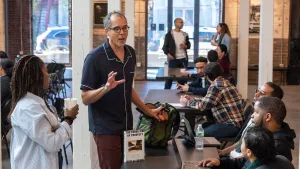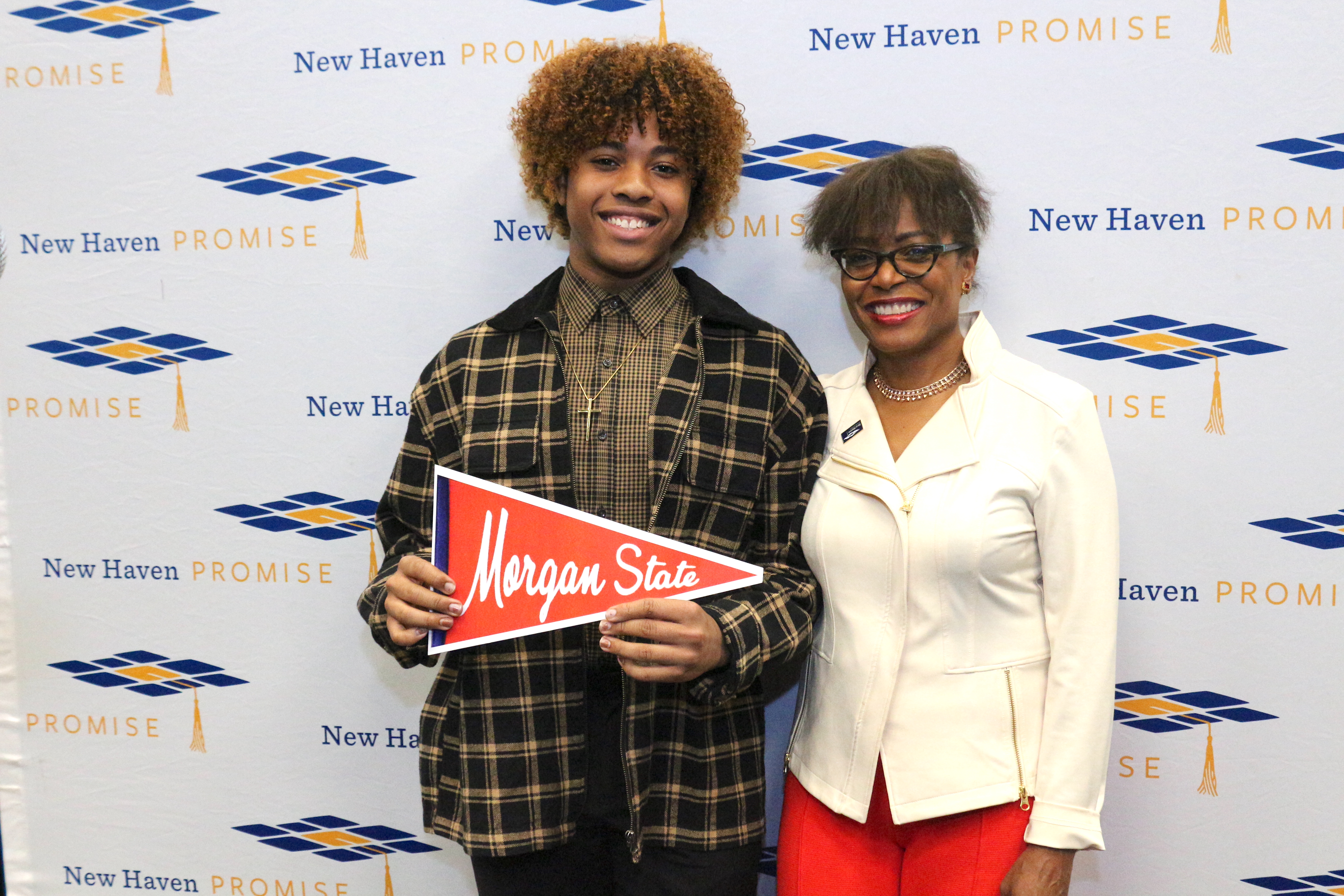Increasing Educational Access and Excellence

The lost opportunity to build a college for Black men in New Haven in 1831 prompts us to strengthen our partnerships with Historically Black Colleges and Universities (HBCUs) across the country today and expand educational pathways for New Haven youth.
New Haven School Teachers
New Haven, as well as the rest of the country, is dealing with an acute and ongoing teacher shortage; in the city, there were 80 teaching positions that went unfilled during the last academic year. There are many reasons for this shortage, including the high costs of acquiring certification and a Master’s in Teaching degree, compared to the relatively modest compensation in the profession. Yale is partnering with the New Haven Public School system, New Haven Promise, and Southern Connecticut State University to design and implement a new residency fellowship program to provide funding to aspiring teachers, so they can attain a Master’s in Teaching degree in exchange for a commitment of at least three years of service in the New Haven Public School system. Once launched, this fellowship program aims to place 100 teachers with master’s degrees into the city’s schools in five years.
Yale and Slavery Teaching Institute Program
Yale is launching a four-year teacher’s institute in summer 2025 to foster innovation in the ways regional history is taught. This program will help K-12 teachers in New England meet new state mandates for incorporating Black and Indigenous history into their curricula. Each year, a cohort of teachers will engage with partners within and outside of the university community to study content and methods related to a particular theme, using the book Yale and Slavery: A History as a springboard. The first year of the program will focus on Indigenous history, followed by slavery in the north, and Reconstruction and the Black freedom struggle. Led by the Gilder Lehrman Center for the Study of Slavery, Resistance, and Abolition at the Yale MacMillan Center, the program will provide a platform for teachers in New England to co-develop curricular materials, in collaboration with scholars, public historians, Native communities, and other groups. The pedagogical materials and methods created through the program will be disseminated broadly for the benefit of students, educators, and the general public throughout the region.
HBCU Research Partnerships
Yale continues to expand our faculty research partnerships with HBCUs across the country. These include pathways programs for students as well as faculty exchange programs and other opportunities for faculty collaboration. On March 5, 2024, Yale announced the Alliance for Scholarship, Collaboration, Engagement, Networking and Development (ASCEND) to strengthen Yale’s partnership with HBCUs. Over the next five years, Yale will commit $2 million annually, for a total of $10 million, to this initiative. ASCEND supports research collaborations between HBCU and Yale faculty, provides resources for HBCU faculty research projects, and expands pathway programs for HBCU students. These programs, planned in collaboration with HBCU partner institutions, commit to increasing representation and amplifying the significant contributions of HBCUs in shaping the academic landscape. The first ASCEND HBCU collaboration grant awards have been announced.
New Haven Promise Program
In January 2022, Yale extended its commitment to New Haven Promise, a college scholarship and career development program that has supported more than 2,800 New Haven Public School students, through June 2026. The university also increased its financial commitment to the program by 25 percent annually, from $4 million to $5 million.
Pennington Fellowship
In December 2022, Yale launched a new scholarship to support New Haven high school graduates to attend one of our partner HBCU institutions (Hampton University, Howard University, Morehouse College, Morgan State University, North Carolina A&T State University, and Spelman College). The program is designed to help address historical disparities in educational opportunities for Black students from New Haven and will grow to include 40-50 Pennington scholars at any given time, supporting students in their academic, financial, and career-entry success.

Celebrating the Inaugural Year of the Pennington Fellowship (Shayne Yang)
Law School Access Program
Yale Law School’s pipeline program serves first-generation, low-income, and under-represented students from New Haven. The program invests in a class of up to 20 Fellows who are passionate about uplifting their local communities in New Haven and Connecticut. Yale began centrally co-funding the program with the Law School in 2024 to ensure its long-term stability.
K-12 Educational Outreach in New Haven
Yale dedicates several million dollars annually toward programs for young people in New Haven and the region. Each year, thousands of public school children participate in academic and social development programs sponsored by Yale on campus. These include Yale’s free Pathways to Science program, which gives New Haven students the opportunity to gain behind-the-scenes access to science laboratories and explore first-hand the new frontiers of scientific research, and Yale’s Pathways to Arts and Humanities program, which provides a wide variety of programs for New Haven students free of charge.